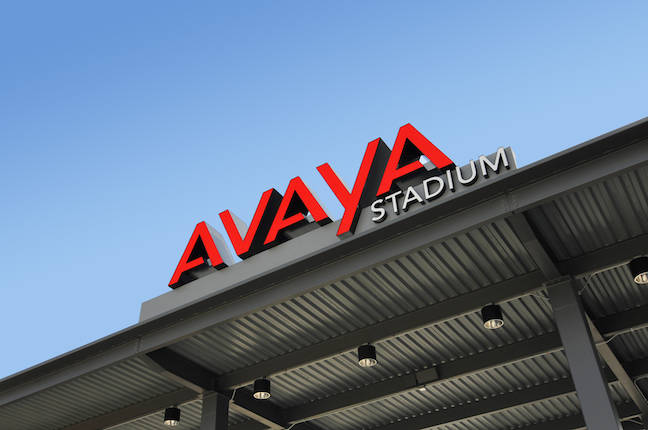A contemporary business solution, cloud computing, enables us to exchange resources directly from a cloud server through the Internet, changing how businesses view their digital infrastructure. Cloud computing is quicker, more affordable, and more effective. As the demand for cloud engineers is increasing, a majority of aspiring cloud engineers inquire about how to learn cloud computing? What is the most effective technique to begin studying cloud computing? We will discuss this in detail in this article.
If instructor-led courses like the Fundamentals of Cloud Computing are not something that excites you, the Internet is a sea of knowledge, and cloud computing allows you to learn anything you desire. But a significant amount of research is necessary to begin learning cloud computing. Fortunately, this post shows you some of the best resources for learning cloud computing from scratch. You will also learn how to start using the cloud for your own projects and how it may assist business, research, education, and community infrastructure.
How to Learn Cloud Computing from Scratch?
1. Assess your foundational knowledge
It is easy to learn cloud computing and to begin a career in cloud computing, you only need a rudimentary understanding of Windows, Linux, and networking. Apart from this, you need an interest in the field.
2. Prerequisite to learn cloud computing
What are the qualifications and requirements to begin learning cloud computing?
Is cloud computing easy to learn? These are the questions that the majority of new learners ask us at some point or another. Information technology (IT), broadly referred to as “cloud computing,” includes the following topics: infrastructure for hardware, infrastructure for software, and Facilities for data centers technology for virtualization principles of software engineering.
All of these topics are interconnected and can give you a solid foundation when you begin learning about and using cloud computing platforms. However, we’ll limit our attention in this post to infrastructure-as-a-service (IaaS) cloud service providers like Amazon Web Services (AWS), Microsoft Azure, and Google Cloud Platform (GCP).
We can start with the premise that learning cloud computing does not require a degree in computer science or computer engineering. You may start learning cloud computing from zero even if you only have very basic IT abilities. You only need to understand some of the key ideas and how they relate to one another.
3. Decide the timeline based on your skill gap
How much time it takes to learn cloud computing? The answer to this depends on your current skill set and learning agility. The foundational concepts of cloud computing will be an exciting adventure for a newbie. It’s tough to find an introductory cloud computing course that fits your requirement. You should consider both the economic and technological aspects to find out your timeline and choose a training program accordingly.
4. Master Basic and Advanced Concepts
As you start learning, make sure you will learn a lot of cloud-related concepts. Here are a few of them:
- Infrastructure as a service (IaaS)
- Platform as a service (PaaS)
- Software as a service (SaaS)
- Private cloud
- Public cloud
- Hybrid cloud
- Serverless computing and many more concepts
Learn Basics of Cloud Computing
The foundational concepts of cloud computing will be an exciting adventure for a newbie. It’s nearly impossible to find the best introductory cloud computing course from the numerous available online. You should take into account both the economic and technological aspects of the adjustments. There are other cloud systems available, but let’s talk about one that actually exists. Since several businesses have begun exploring AWS for various workloads or to move, there are a lot of courses about it.
After you have a better understanding of the structure of Amazon Web Services, you may start advancing your career in AWS by enrolling in advanced courses.
Understand the Cloud Computing concepts like OS, Virtualization, Networking, and more
NETWORKING
It is a wonderful idea to comprehend networking and understand networking! One of the reasons is that it serves as the connecting element in the world of computers. You learn how various servers all across the world communicate with one another. These all occur as a result of networking. Put some thought into networking concepts. The following is a compiled list of networking certifications:
| Professional Level | Certifications |
|---|---|
| Entry Level | CCENT, CCT |
| Associate Level | CCDA, CCNA |
| Professional Level | CCDP, CCNP |
| Expert Level | CCDE, CCIE |
| Architect Level | CCAr |
Once you have a foundational understanding of operating systems and virtualization technologies, you might want to think about taking some beginner networking classes. Then, learning cloud computing will be simple for you. Do not lose hope if networking initially appears like some sort of magical wizardry; that is quite normal.
Networking may be a very tough topic, and even individuals with great analytical skills often need time to understand it properly. You can begin by looking at a comprehensive learning route we have that covers the fundamentals of AWS networking, beginning with a VPC – a virtual private cloud. Just remember that your virtual machine also needs a virtualized communication center to get you started.
5. Get a Hands-on Understanding of How Cloud Platforms Work
What if we had access to that at the outset of our cloud journey? What if we could test the waters and look into the various facets of cloud computing?
Imagine someone who is about to graduate from high school, is prepared to begin a career in information technology in college or university and has some additional time to gain some practical experience—though perhaps not the 200–500 dollars necessary to test a cloud platform.
The goal of this article is to demonstrate how using online platforms can help you develop some abilities as you learn.
Additionally, you can use this information to study for aws cloud practitioner and can check the Cost for AWS Cloud Practitioner Certification and other crucial cloud computing-related courses online.
Hands-on Labs are actual cloud environments that let you practise learning in real-time using a variety of technologies, including Amazon Web Services, Microsoft Azure, Google Cloud Platform, and others. Hands-on Labs are the ideal approach to study cloud computing without taking any risks because there are no additional expenses, accounts, or cloud resources to deploy. You can get your hands dirty without actually getting them dirty, to use the cringe-worthy hands-on analogy to its absurd extreme.
It’s simple. You just:
- Select a lab Press a button to launch the lab.
- Obtain the login information for your cloud environment.
- Click a link,
- sign in, and then Start!
6. Get Cloud Certifications
Similar to many IT careers, practical experience can frequently speak louder than a qualification on its own. Having said that, a certification can be helpful in demonstrating your skills to hiring managers and in assisting you in filling in any gaps in your experience.
A skill that is highly in demand is cloud computing. According to a 2020 analysis by Global Knowledge, the average income for cloud computing specialists in North America was $153,655. That is significantly greater than the industry average, which was $115,906 [2]. Among their top 10 recession-proof IT careers, Global Knowledge also included the roles of cloud architect and administrator. Those looking to position themselves for entry-level cloud-related careers are sometimes advised to obtain the following certifications.
- Amazon Web Services (AWS) Solutions Architect – Associate
You can get the AWS Solutions Architect – Associate certification by passing a multiple-choice exam that gauges your proficiency with AWS, the top cloud platform, in terms of service deployment, management, and use. The certification demonstrates your mastery of the fundamental technical ideas of AWS cloud engineering, positioning you to be considered for careers in the field.
Having just begun using AWS? In order to gain experience for the AWS Solutions Architect – Associate certification, candidates with a few months of experience should consider earning the AWS Certified Cloud Practitioner certification. Or think about enrolling in several AWS Fundamentals courses on Coursera.
Cost: $150
What is being evaluated includes AWS services for computing, networking, storage, and databases, as well as their deployment and management, worldwide AWS infrastructure, network technologies used in relation to AWS, and other topics.
- Microsoft Certified: Azure Fundamentals
Azure can be a helpful cloud platform to study since it has the second-largest market share in the cloud industry. The AZ-900 test, which is required for the Azure fundamental certification, is created for those with both technical and non-technical backgrounds. It’s a reliable certification that will bring your basic understanding of Azure up to speed. The Azure Administrator Associate or Azure Developer Associate certifications are optional and can be obtained after that.
Cost: $99
What is under test: The distinctions between cloud services such as IaaS and PaaS, the advantages of using them, the core Azure services such as virtual machines (VMs), containers, Kubernetes, and database services, an understanding of Azure core solutions and management tools, fundamental security, including network security, and other topics.
- Google Associate Cloud Engineer
To become certified as a Google Associate Cloud Engineer, you must demonstrate your proficiency with the fundamentals of using Google Cloud. This includes, among other things, setting up a cloud solution environment, managing databases, and storage, and defining access and security.
Cost: $125
What is under test: designing and setting up compute, data storage, and network resources; deploying Google Kubernetes Engine applications; managing a virtual machine (VM); establishing cloud solutions by creating projects, managing users in Cloud Identity, and managing payment configuration; even more
- IBM Certified Technical Advocate – Cloud v3
Despite having a smaller market share than the competition, IBM cloud services are nonetheless beneficial in sectors where IBM cloud platforms are used. The fundamental qualification for IBM cloud is the IBM Certified Technical Advocate – Cloud v3 (formerly known as IBM Certified Solution Advisor). This certification may be beneficial if you now work for a company that predominantly builds solutions based on the IBM cloud or if you plan to do so in the future. The IBM Certified Professional Architect – Cloud v5 is one of the more advanced levels of IBM cloud certifications.
Cost: $200
What is under test: Understanding of cloud ideas, IBM Cloud components, architectural principles and patterns, networking, and security, as well as Cloud Native practices and cloud deployment, are just a few examples.
- Cloud Security Alliance: Certificate of Cloud Security Knowledge (CCSK)
The Cloud Security Alliance, a supplier of vendor-neutral certification, is issuing the CCSK. This implies that the skills you acquire through certification can be used with many cloud platforms. The core concepts of cloud security are the emphasis of the CCSK. There are other advanced certifications that demonstrate a professional level of expertise in cloud security, such as the CCSP from (ISC)2.
Cost: $395
What is being evaluated includes governance and enterprise risk management, data security, virtualization and containers, and more. Cloud computing concepts and architecture are also being explored.
7. Which certification in the cloud should you obtain?
If you choose to pursue a cloud certification, it’s a good idea to research the most popular cloud platforms in your region and chosen sector. Financial businesses may use IBM or AWS, whereas government agencies frequently use Azure.
Amazon Web Services (AWS), Microsoft Azure, Google Cloud, and IBM were the top four cloud infrastructure providers as of May 2022.
Best Resources to Learn Cloud Computing
Many professionals today are pursuing careers in cloud computing. They need the best resources to learn cloud computing. They must stay up to date on the most recent events and fashions in order to develop their knowledge of cloud computing and succeed in this line of work. How to learn cloud computing for beginners, some of the best places to learn about cloud computing and stay up to date with current market developments are as follows:
One of the finest ways to study cloud computing is through online classes. For the benefit of the students, many online courses provide videos, articles, eBooks, reports, hands-on laboratories, and evaluations. How to start learning cloud computing, The following is a list of some of the top online cloud computing courses:
1. Learn with AWS
You’ll love the materials’ simplicity as well as how much information is included in each lesson.
You can learn the principles and put them into practice on your own with the aid of classes like AWS Cloud Practitioner Essentials, Introduction to AWS Secrets Manager, Big Data Technology Fundamentals, and AWS Analytics Services Overview.
Everyone who wants to learn about cloud computing should take an AWS course, especially if you intend to specialize in AWS and make cloud computing your career.
Suppose you’re interested in learning more about the different cloud deployment and other services that AWS offers, be sure to visit their training page. After completing the courses, you should have a mastery of cloud infrastructure.
2. From Scratch
It is not only an introductory course in cloud computing. How to learn cloud computing from scratch? It also covers many other crucial issues in addition to providing a simple introduction to cloud technology. Service Models (SaaS) and Linux/cloud operating systems will be introduced to you in the second part.
Your journey through the third module will include stops at AWS and Google Cloud, among other cloud platforms. You’ll also discover the value of visualization architecture and be given useful examples, so the lesson doesn’t end there.
Once you’ve gotten through all nine yet in-depth courses, you’ll have a good understanding of how cloud infrastructure functions and which area you should choose to focus on more in the future.
This training can undoubtedly assist you if you are one of those people who are unsure of which cloud service provider to pick. It will give you a quick rundown of the biggest cloud service providers on the market, along with some samples.
Why Learn Cloud Computing?
The way that technology development has affected how society thinks and aspires has a lengthy history. It goes without saying that technology has both generated and destroyed jobs. The growth and decline of switchboard operators are an excellent illustration.
Transistors have made it possible to create portable, hand-held computers with incredible computing capability. The Cloud is following the same trajectory as transistors did when they drastically changed our way of life. The next stage of digital transformation is cloud computing.
The Cloud has altered how we see and analyze data. By lowering operating expenses and human error, AI-based predictions supported by cloud resources are now the standard methods for addressing important business decisions and objectives. By expediting the global delivery of media content, it has also changed the entertainment sector.
Most conventional IT functions are currently being moved to the Cloud. Even the concept of renting actual rooms and purchasing specialized computers to host servers and databases will likely be laughed at in the future by our descendants.
The good news is that learning cloud computing would be simpler for you if you already have experience and a position in the IT industry. Your present skill sets in automation, development or networking could be applied to the cloud. You can start by obtaining a Cloud Certification if you’re seeking a way to advance your professional position by upgrading your skills in the hopes of raising your compensation.
A wonderful method to position yourself as an IT professional of the highest grade is through cloud certifications. It will demonstrate your desire to remain current and your readiness to do so, which will ultimately create opportunities for you to advance in your position.
Learning about the complexities of cloud computing isn’t necessarily done to prepare for a career. Another good incentive to learn cloud computing is if you enjoy coming up with new solutions to problems in the real world as a pastime. Cloud service providers have a variety of tools at their disposal that can show you how to create solutions for real-world issues more quickly.
Conclusion
In conclusion, cloud computing is a relatively young technological innovation with enormous potential for global effect. It offers its users and businesses a wide range of advantages. For instance, one of the advantages it offers to organizations is that it lowers operational costs by focusing more on the business itself and paying less on upkeep and software upgrades. However, there are still more difficulties that cloud computing must face.
People have a lot of doubts about how safe and private their data is. Worldwide norms or laws do not apply to data delivered via cloud computing. Despite being one of the most technologically advanced countries, the US lacks data protection rules compared to Europe.
A significant portion of the computer industry, including software developers and internet service providers, will be impacted by cloud computing. Without having to worry about server hardware configurations or other requirements, cloud computing makes it incredibly simple for businesses to offer their products to end users.
Virtualization and cloud computing are distinguished by the fact that all control plane tasks related to the development, administration, and upkeep of the virtual environment are delegated to an automated layer known as an API and other cloud management servers.
To put it simply, virtualization is a component of cloud computing that involves manual management to communicate with a hypervisor. On the other side, cloud computing allows customers to self-consume cloud services by using an API (Application Program Interface) to manage their own activities.
To learn more about cloud computing and how your business can benefit from it, check out the KnowledgeHut’s Fundamentals of Cloud Computing.
Frequently Asked Questions (FAQs)
1. What do I need to learn to be a cloud computing engineer?
Being skilled in at least one of the three main cloud computing platforms AWS, Azure, or Google Cloud Platform is the first and most important step to becoming a cloud engineer (GCP). To acquire a fundamental understanding, you can access a variety of materials online, including YouTube videos, scholarly articles, and virtual or actual training. After doing it, you can proceed to obtain certification in any of the relevant environments.
2. Which cloud course is best for beginners?
Learn to use at least one significant cloud computing platform. We advise the aspirant to get familiar with the AWS, or Amazon Web Services, platform.
3. Is cloud computing easy to learn?
Learning cloud computing is not that tough as long as you have the assistance and direction of a reputable training facility. One can quickly understand all the fundamental ideas and themes of cloud computing by enrolling in a cloud computing certification course.




















Discussion about this post